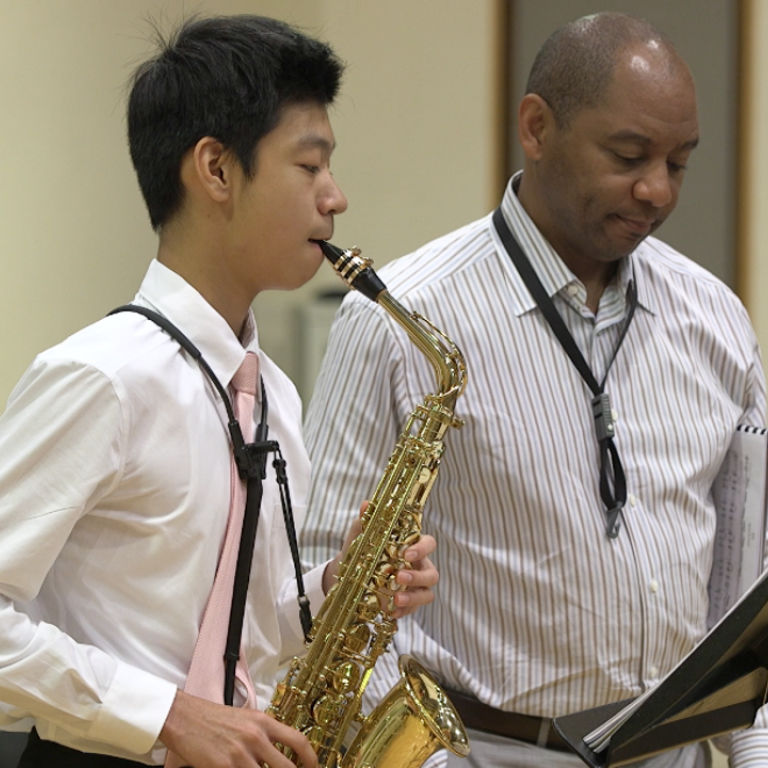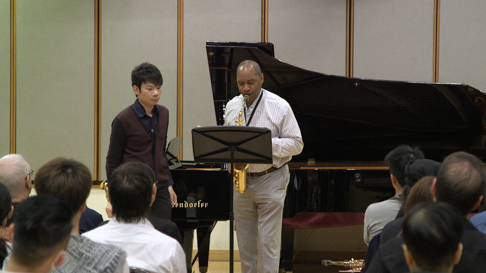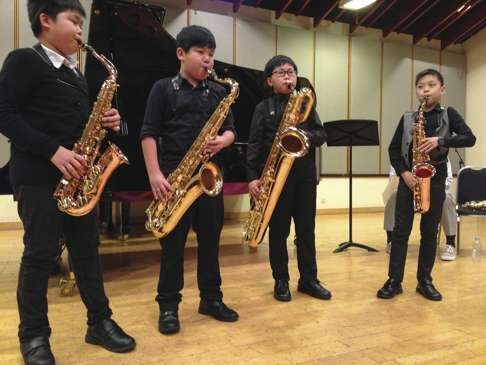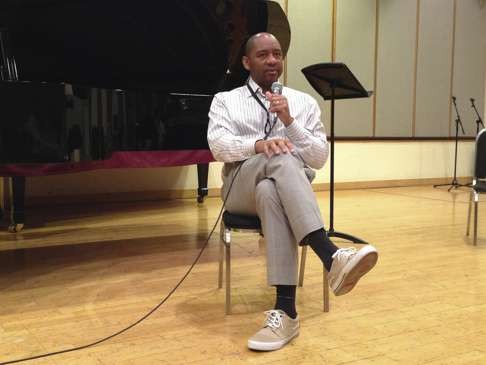
Marsalis masterclass: jazz great impressed with Hongkongers’ saxophone skills
Ahead of his Hong Kong debut, Branford Marsalis coaches some young city musicians. His biggest tip for them: ‘People react to sound. Sound can create emotion. Technique is just execution’
Branford Marsalis is best known as a jazz musician, but about 10 years ago the saxophonist began focusing more on classical music, which he says has made him a better musician, and that’s what he’ll be playing this week when he makes his Hong Kong debut with the City Chamber Orchestra of Hong Kong.
Ahead of that concert the New Orleans artist spent Sunday afternoon helping 40 budding saxophonists with a masterclass held in a rehearsal room at the Hong Kong Cultural Centre.
Chiang Man-ching was the first up to play for Marsalis. The 24-year-old magazine editor began playing the sax 10 years ago because he keen to join the high school band and would play any instrument to get in. The teacher suggested the saxophone and at first Chiang found it difficult to learn, but he persevered.
Watch: 'Sound can create emotion': jazz master Branford Marsalis teaches Hong Kong students a lesson
“It’s a very special instrument because it’s different from an oboe, which is more a traditional instrument. The saxophone has a unique sound that is ideal for romantic and 20th century pieces,” he explains before the master class.
“I really like Branford Marsalis because he plays both jazz and classical so well. I like to listen to his jazz music as background music while I work,” he says.
As Chiang played Benjamin Britten’s Six Metamorphoses after Ovid, Marsalis listened, his eyes closed. Afterwards, the 55-year-old rose from his chair and worked with Chiang on parts of the piece. He stressed the importance of not rushing while playing to allow not only breathing space for himself, but the audience as well. He also taught Chiang a drill to practice with a metronome to be able to play his notes more evenly.

Thirteen-year-old James Cheng got up to play the third movement of Concerto for Alto Saxophone by Pierre Max Dubois. The Diocesan Boys’ School student nailed the piece so well that Marsalis didn’t have much to say, except ask him how old he was.
“Thirteen? You played better than when I was your age,” he said to laughs in the audience.
Cheng tried to keep his cool but was secretly thrilled Marsalis didn’t have much to critique about his performance. “I practiced really hard and I’m glad he liked my playing,” he said with a grin.
Cheng first picked up the sax when he was around six years old and liked the sounds he was able to make from it. “I enjoy the melodies from the saxophone and every note on the score. I like to know why the composer wrote each note,” he says.

“They [the students] were great, a couple who were really fantastic but they were curious and they practiced a lot and I enjoyed myself,” Marsalis said after the masterclass.
Because he was working with performers only for several minutes each, he listened more for sound and musicality.
“In music the thing that makes people dance isn’t the technical thing. The thing that makes people cry isn’t the technical thing, it’s the sound,” Marsalis says. “People react to sound. Sound can create emotion. Technique is emotionless, it’s just execution. There are some young musicians and some older musicians who can execute very well, but they just don’t play music very well. And I think it’s very important to differentiate playing the music and playing the instrument. They are two very separate things.”

He says he enjoys conducting masterclasses; his father Ellis, a jazz pianist and music teacher, taught his son the importance of paying it forward.
The younger Marsalis also sees himself as a student too, and likes the long, slow process of learning a musical genre. “I’ll always be a student. We’re only here for a short period of time. Some people just survive. I like challenging myself, pushing myself to the limits to see what I can achieve. I’m never going to be a finished product. I just keep learning, incorporating new sounds and new ideas.”
Branford Marsalis, Hong Kong City Hall Concert Hall, April 27, 8pm

